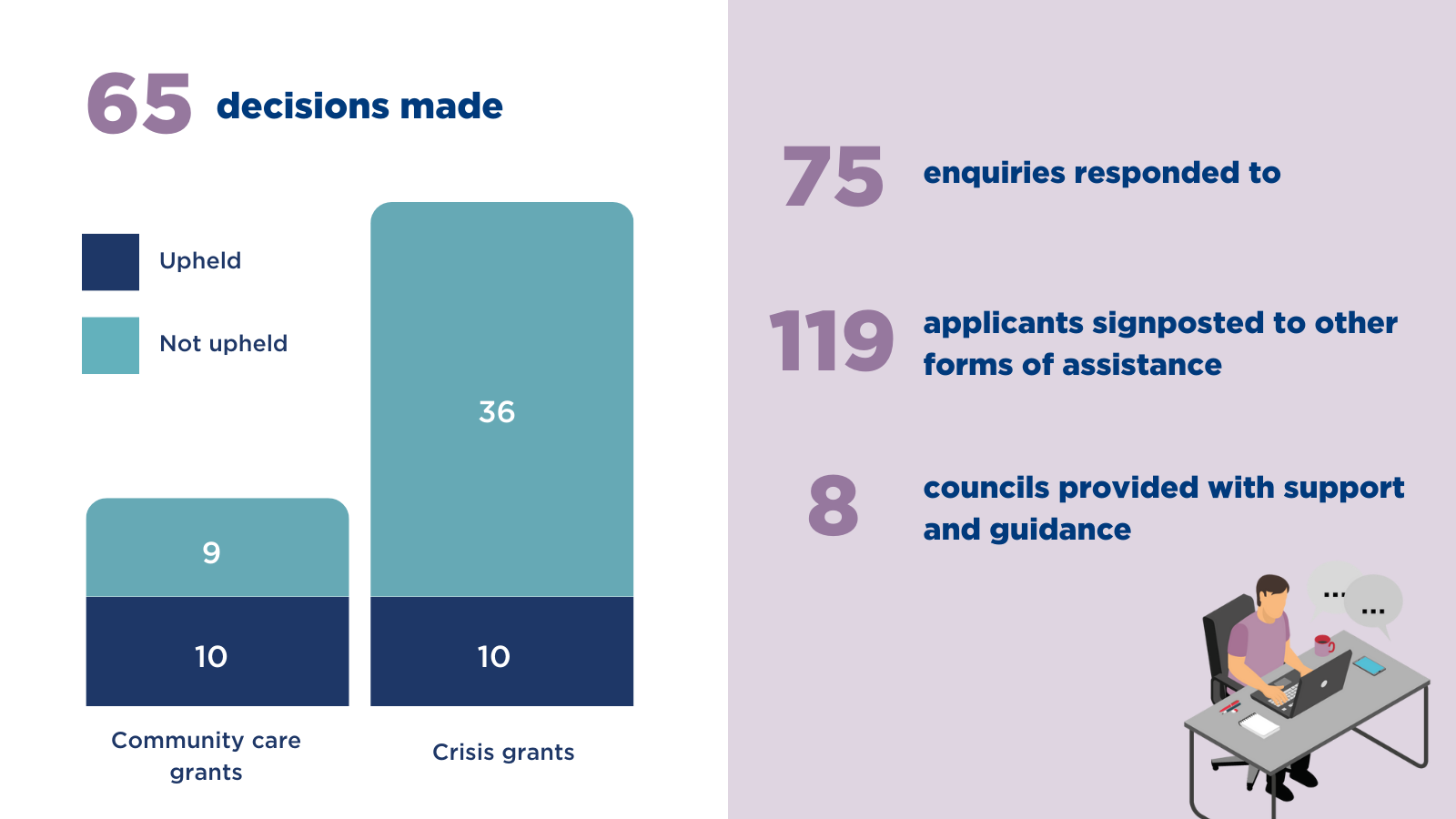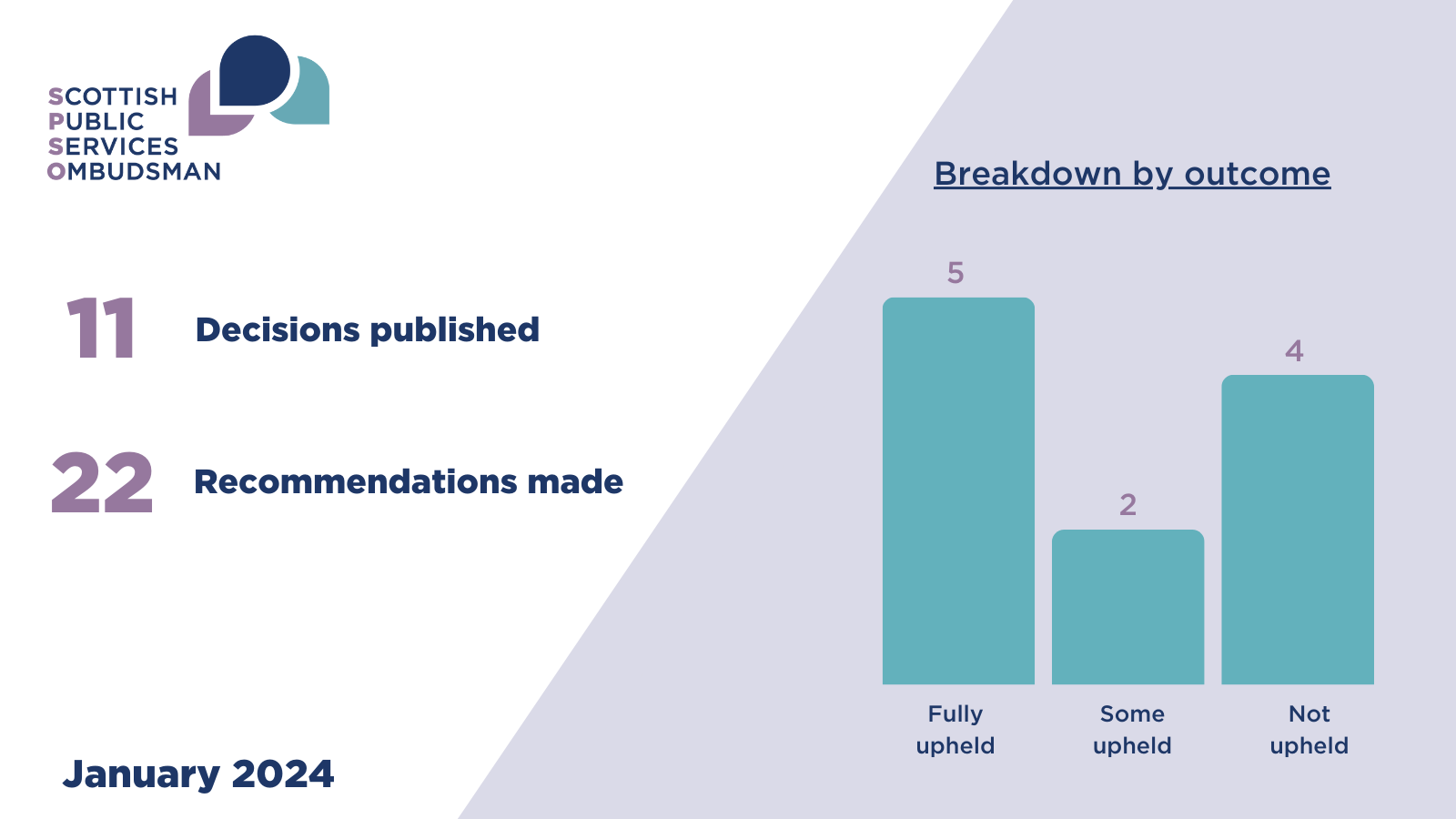Scottish Welfare Fund news - January 2024
Date of article: 24/01/2024
Daily News of: 29/01/2024
Country:  United Kingdom
- Scotland
United Kingdom
- Scotland
Author: Scottish Public Services Ombudsman
Article language: en

Last month we:
- responded to 75 enquiries
- made 65 decisions
- 19 community care grants
- 46 crisis grants
- upheld 53% of community care grants and 22% of crisis grants
- signposted an additional 119 applicants to other sources of assistance. 80% of these were calling us instead of their local council in error. Fourteen applicants told us that they had issues getting in touch with their local council as they as there was no freephone number and/or they encountered issues applying online
- received eight enquiries from councils seeking advice
Support and Intervention Policy
We escalated two new issues under level one of our Support and Intervention Policy. These concerned failing to record the decision in line with the guidance and incorrectly interpreting the available information. We also escalated a further issue, around failing to meet decision timescales, to level two.
Case studies
In recent weeks we have observed issues with councils incorrectly interpreting the available information. One example is highlighted below:
Incorrect interpretation of available information
Incorrect interpretation of available information C requested an independent review of the Council's decision on their crisis grant application. They applied for assistance with their food, gas and electricity as they had received a lower income due to being off work ill. As a result, they had struggled to manage their living costs.
The Council declined the application as no bank statement had been provided, and because C had received their benefit payment a few days prior to their application. C explained they did not have online banking and were too unwell to go to the bank to get a statement. They requested a first tier review of the decision but the Council did not change their original decision, stating that this was because C could not provide a bank statement and they therefore could not be satisfied that the application met the qualifying conditions.
We reviewed the Council’s file and contacted C by phone for further information. C provided a breakdown of how they had spent their income. They confirmed they did not have online banking and could not travel to their bank due to their health issues. We assessed that C provided a reasonable account of their expenditure and around why they could not obtain evidence from their bank. Based on the information available, we were satisfied on balance, that C was facing a crisis situation and that the conditions for an award were met. We changed the Council’s decision on the basis that they had incorrectly interpreted the available information and instructed them to make an award. We also provided feedback about the decision letters not being in line with the requirements of the guidance.
You can find more case studies in the searchable directory on our website.

